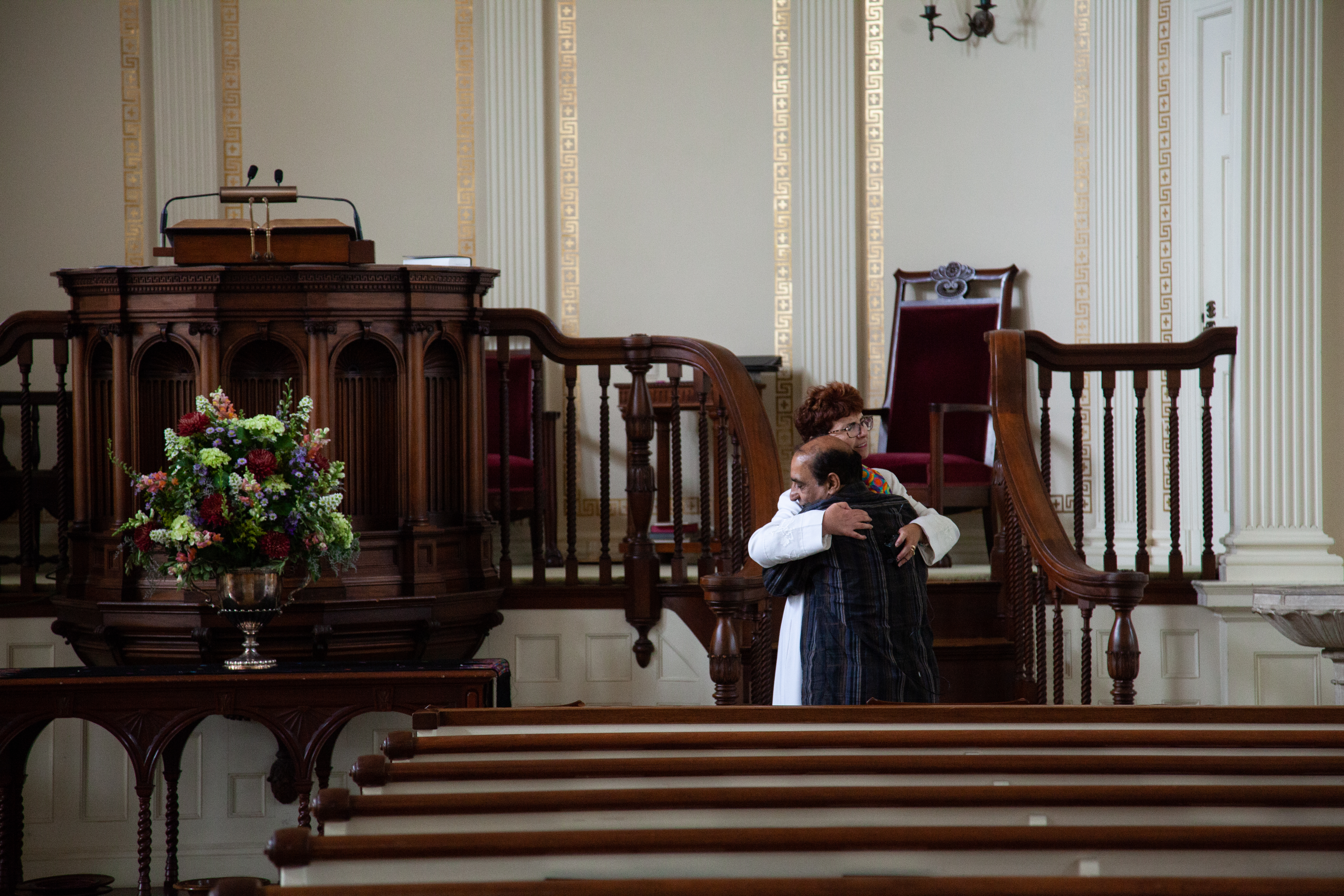They took sanctuary in a Connecticut church — but did not hide from immigration officers
Malik Naveed bin Rehman hugs Pastor Laura Nager after she delivered the Sunday sermon on Sept. 23, 2018 at First Congregational Church of Old Lyme in Connecticut. Much of Nager’s sermon related to how immigrants are being treated in the US today.
Malik Naveed bin Rehman has spent much of this year wishing he could see the town of Old Lyme, Connecticut. He and his wife Zahida Altaf lived in the leafy coastal town for six months, but never actually walked out on the streets.
That’s because they were confined to the grounds of the First Congregational Church of Old Lyme, where they were seeking sanctuary from a deportation order they received earlier in 2018.
A bulky ankle monitor allowed authorities to keep track of Rehman, who was careful to never leave the church premises. He maintains that in the 18 years he and his wife have been in the US, they’ve never broken or attempted to evade the law.
The couple entered the US from Pakistan legally in 2000, on a tourist visa, and decided to seek asylum so they could live and work here permanently. The family and their attorney both declined to comment on the specifics of their asylum claim for fear that it could jeopardize their case.
Rehman says he always reads and hears that immigrants have a good life in the US, and when they first arrived, they too had a good life. “We people no have a problem,” he says.
Over the years they put their trust in one lawyer after another in order to get legal status in the US, but they were defrauded by two different attorneys while their case hardly advanced. Those lawyers served time in jail for immigration fraud, according to Rehman’s current attorney, Glenn Formica.
Rehman and Altaf’s request for asylum was eventually denied in 2008 by an immigration judge, and they subsequently lost an appeal to the Board of Immigration Appeals in 2010. Though they were technically supposed to leave the country then, authorities never came to physically remove them, so Rehman and Altaf continued to live and work in the US. They didn’t know they had further avenues for appeal — they just knew they didn’t want to return to Pakistan.
On Nov. 20, 2014, President Barack Obama issued the Immigration Accountability Executive Action, tightening border security and creating stricter penalties, while also giving undocumented immigrants like Rehman and Altaf a way to “start paying their fair share of taxes and temporarily stay in the US without fear of deportation for three years at a time,” according to the White House press release.
The executive action shifted immigration officials’ priorities toward deporting severe criminal offenders, and away from those with no record like Rehman and Altaf, who by then had a US-born citizen daughter. It also stipulated that those who regularly checked in with Immigration and Customs Enforcement (ICE) officials would be given permission to work, even if they had orders of removal like Rehman and Altaf.
By 2015, they thought they were in the clear. The couple received their social security numbers and permits to work, and began regular check-ins with ICE officials, who Rehman says were usually cordial and welcoming. In 2017, when he asked for permission to open a pizza shop in New Britain, Connecticut, an ICE officer said to go ahead — so he did.
Things seemed fine until Jan. 2, 2018. During a routine appointment with ICE, Rehman and Altaf say an officer informed them that they needed to buy plane tickets to leave the country. The officer told Rehman to sign papers and buy plane tickets to leave on March 2.
“When they break that news for us, we are very shocked,” Altaf says. “So we didn’t get it. Why is happening this?”
What worried them most is what would happen to their 5-year-old daughter, Raniya. As a citizen, she is allowed to stay in the US, even if her parents are deported. Altaf says that she and her husband were shocked when ICE officials said that their daughter, who was present for the meeting, could stay with other relatives in the country or be given over to state custody.
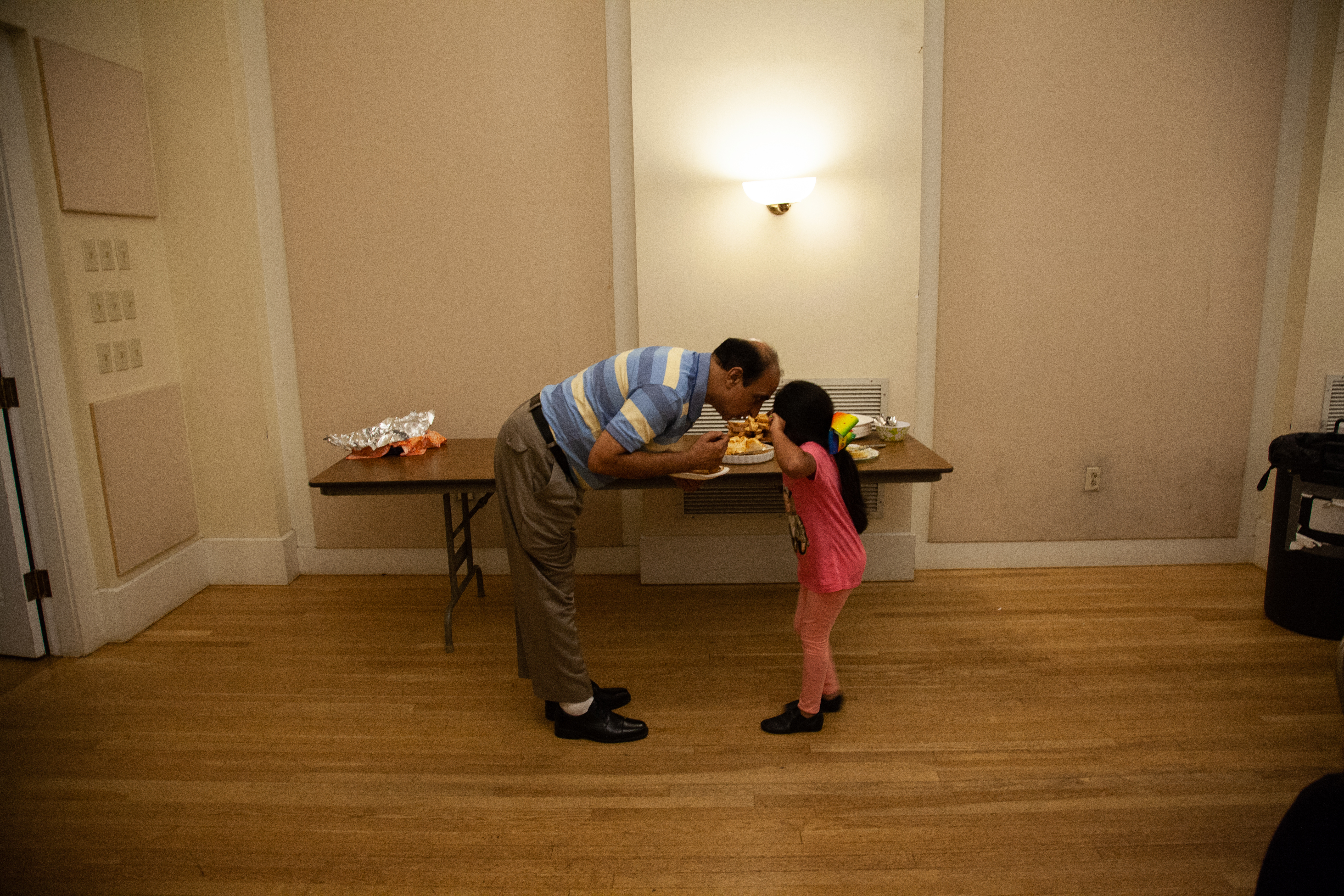
Back at home, Raniya begged them not to leave her behind in America.
“I just give her hug and I say, ‘Don’t think that. If we go, so you go with us. Where we go,’” Altaf remembers. “Even though she’s just 5, she’s getting mature. Sometimes I feel that I kill her childhood. Because it’s too much information for her mind.”
Rehman eventually bought tickets for his entire family to leave the country. On March 2, they made their way to John F. Kennedy International Airport in Queens, New York, when a relative called to inform them that the flight was canceled because of stormy weather.
Rehman thought it was a sign that a higher power had intervened on their behalf. He decided that his family should stay and fight for their case again. Rehman and Altaf could still bring their case to the Board of Immigration Appeals, this time to challenge ICE’s order of removal, but a successful appeal would do nothing for them if they were already out of the country.
More: When the government wrongly deports people, coming back to the US is almost impossible
Their niece, a student activist at Central Connecticut State University, told other immigration advocates on her campus about her family’s situation. She told them that her relatives had lost an appeal for asylum and ICE, under new guidance of the Trump administration, was telling them to self-deport. New Sanctuary Connecticut, a group of churches willing to give sanctuary to immigrants facing deportation, stepped up to help.
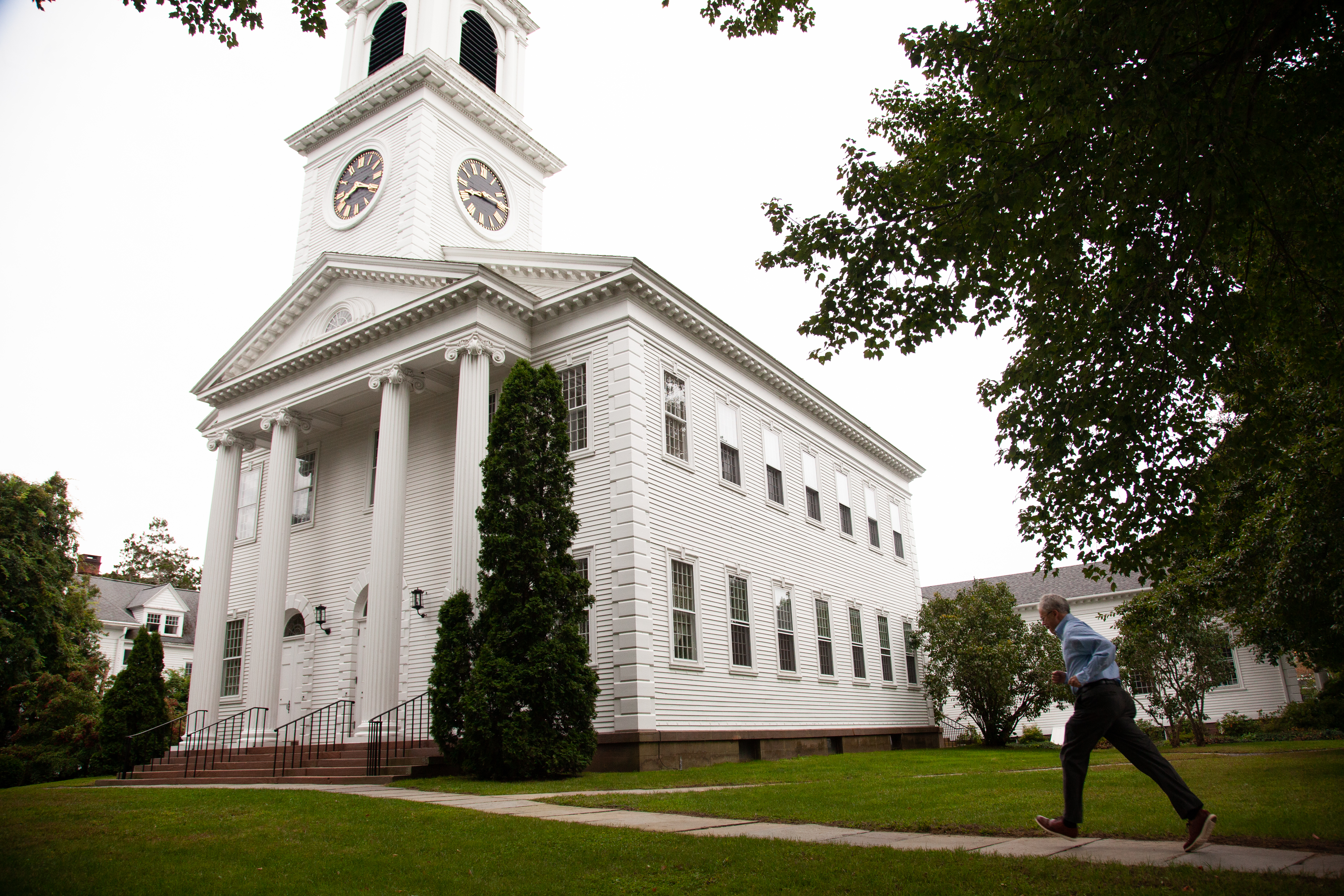
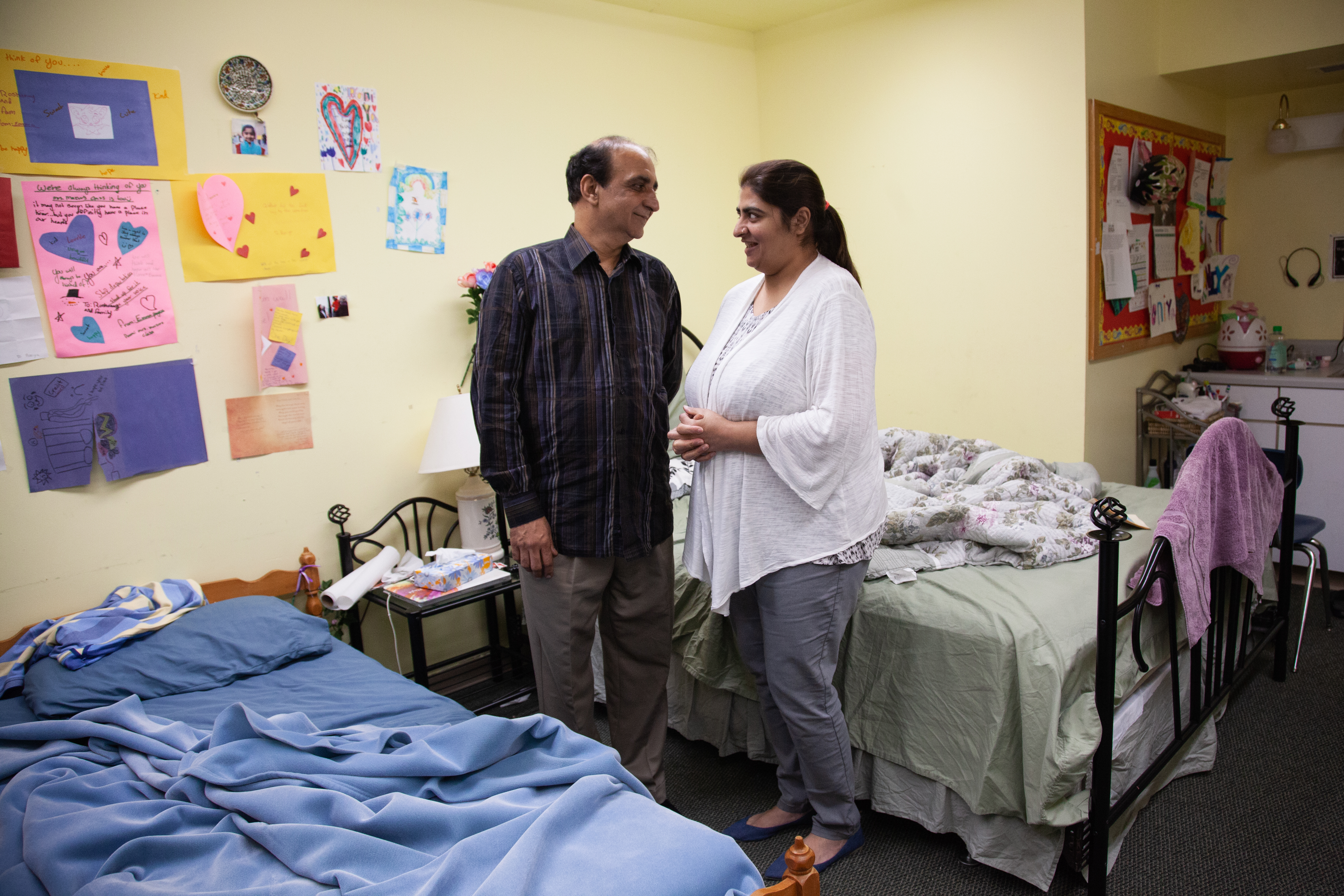
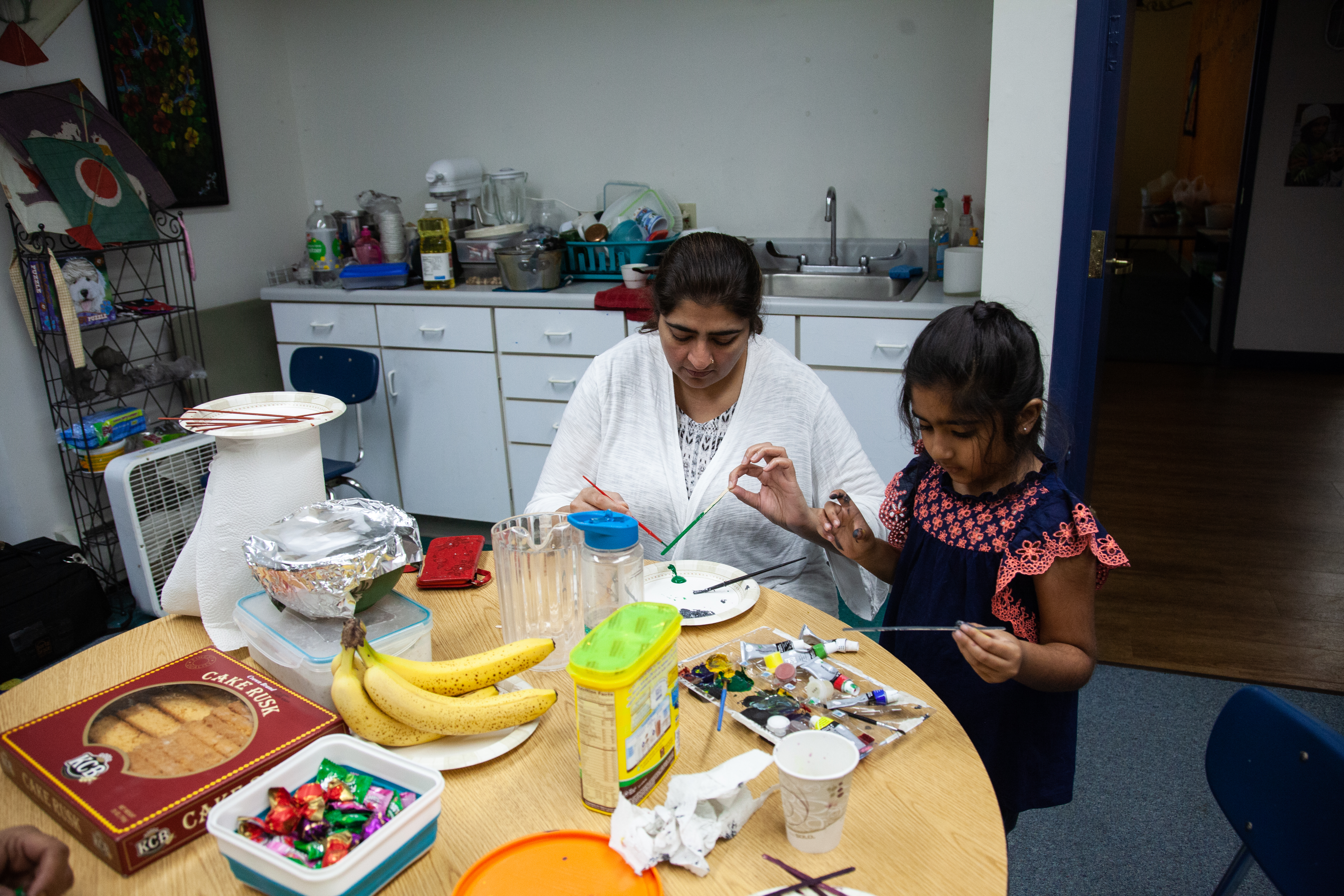
The First Congregational Church of Old Lyme took them in on March 19. At the time, Rehman and Altaf were the third immigrant family whose cases were made public and were taking sanctuary in Connecticut churches. Raniya stayed there too, but left church grounds to go to school and spent some time staying with relatives.
Formica, who officially became Rehman and Altaf’s attorney shortly after they arrived at the church, says that in his capacity as a lawyer he would not recommend moving into a church because it can make a client’s case more challenging. But he also says that, at least in this case, sanctuary was their last avenue to continue their case while staying in the US.
“If I were in my clients’ situation, as a person, I would probably elect sanctuary,” Formica says.
Lina Tuck, head of the church’s Immigration Assistance Committee, says that many people in the congregation became specifically interested in helping immigrants after the election of President Donald Trump. When Reverend Steve Jungkeit, the senior minister at the church, approached her to lead and organize efforts to support immigrants, Tuck agreed.
“After the election, I had actually said to him, whatever we decide to do as a church — if there’s any, you know, advocacy or work that we’re gonna do to combat the horrors that we are all expecting with the Trump administration — that I would be in,” Tuck says. “And I would help with whatever he felt would be appropriate for our church.”
The congregation did not know Rehman and Altaf’s names, or that they are Muslims, until they showed up at their front door. They were only given the basics of their situation, and one significant detail: that they had not yet exhausted all their legal options to stay in the US.
Tuck says the church would not be able to accept cases that did not have any further avenues for appeal, because they would essentially be living in the church indefinitely.
Formica says this is the problem: The immigration system does not have a coherent policy that allows people to fully exhaust their legal options, leaving Altaf and Rehman in a state of limbo where they have to violate orders of removal in order to wait out legal proceedings that might allow them to stay. So they decided to wait for a ruling on their latest appeal in the church.
“I think it’s also, in a certain sense, you know, making a final appeal to God, right? I mean the government’s abandoned your plea,” says Formica.
For Tuck, providing sanctuary is all about giving the family a fair shot at due process with proper legal representation, something she says they never had because their previous lawyers swindled them.
“Our hope is that they will be successful in their due process, but there’s no guarantee of that, and if there isn’t then we have to honor that,” she says. “But to this date, they’ve not been given their right to due process.”
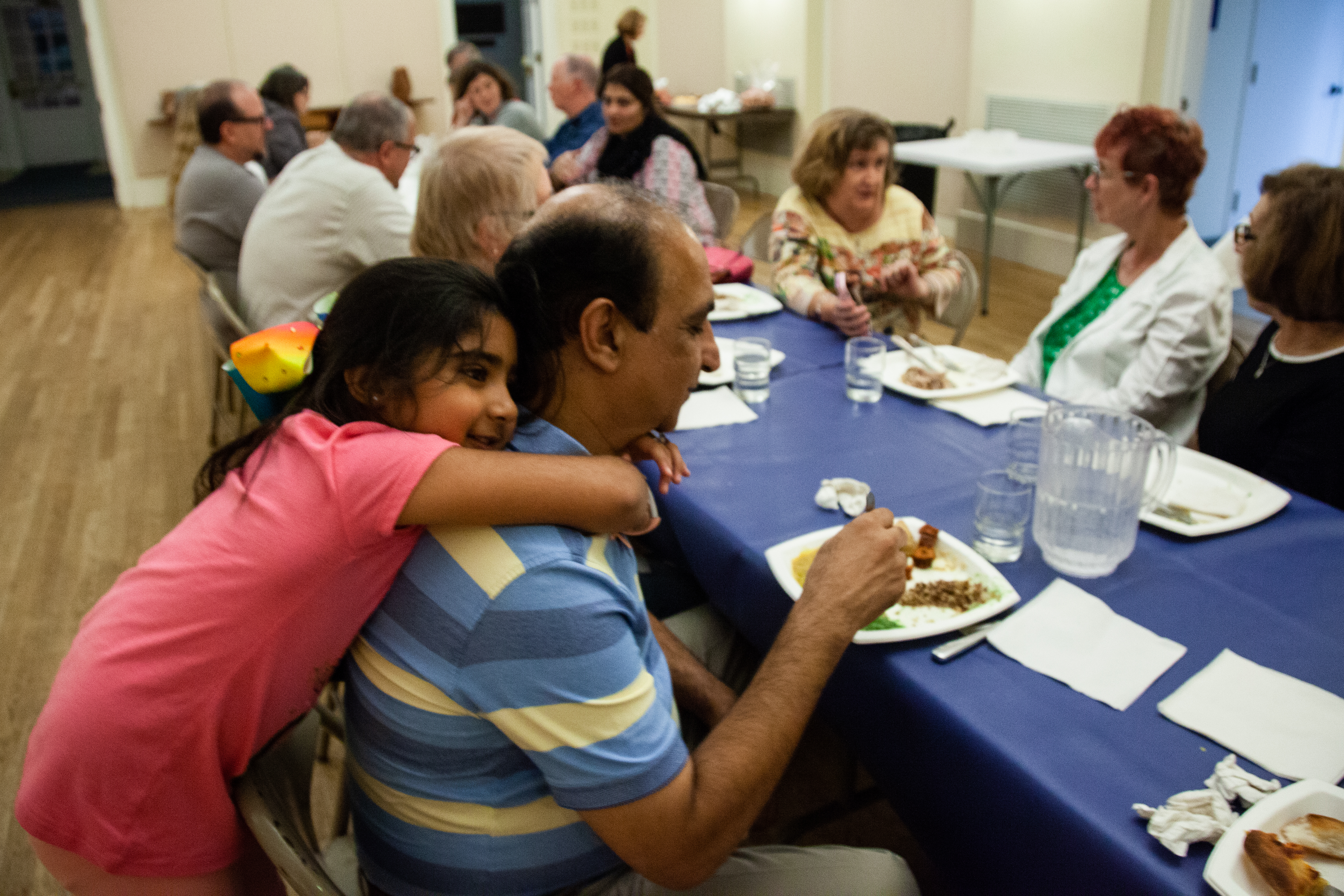
Not everyone at the church agreed with the decision to provide sanctuary. Jungkeit told Dave Eggers in the New Yorker that one congregation member even withdrew their substantial monthly donation because they felt the church’s actions were disrespecting the law.
But Senior Associate Minister Laura Nager, who joined the church the day before Rehman and Altaf arrived, says the church is not actually breaking the law. Like Tuck, she sees giving sanctuary as an act of disobedience against an unjust law.
The church did not harbor the family secretly. They sent certified letters to ICE to inform them of the situation and held a public press conference. And ICE could come into the church to arrest the couple at any time — it’s just an informal respect for a long-standing tradition of governments respecting places of worship that keeps them from doing so.
“The government and the church have this uneasy agreement that they’re not going to violate each other,” says Formica. “I would never advise a client to go into sanctuary, but if somebody is in sanctuary I am not going to try to seal his location from ICE. I’m not hiding a client when they’re in sanctuary.”
The Massachusetts ICE field office, which oversees Connecticut, did not reply to repeated requests made over the course of four weeks by phone and email for information about this case or its policies generally. Neither did ICE’s main office in Washington, DC.
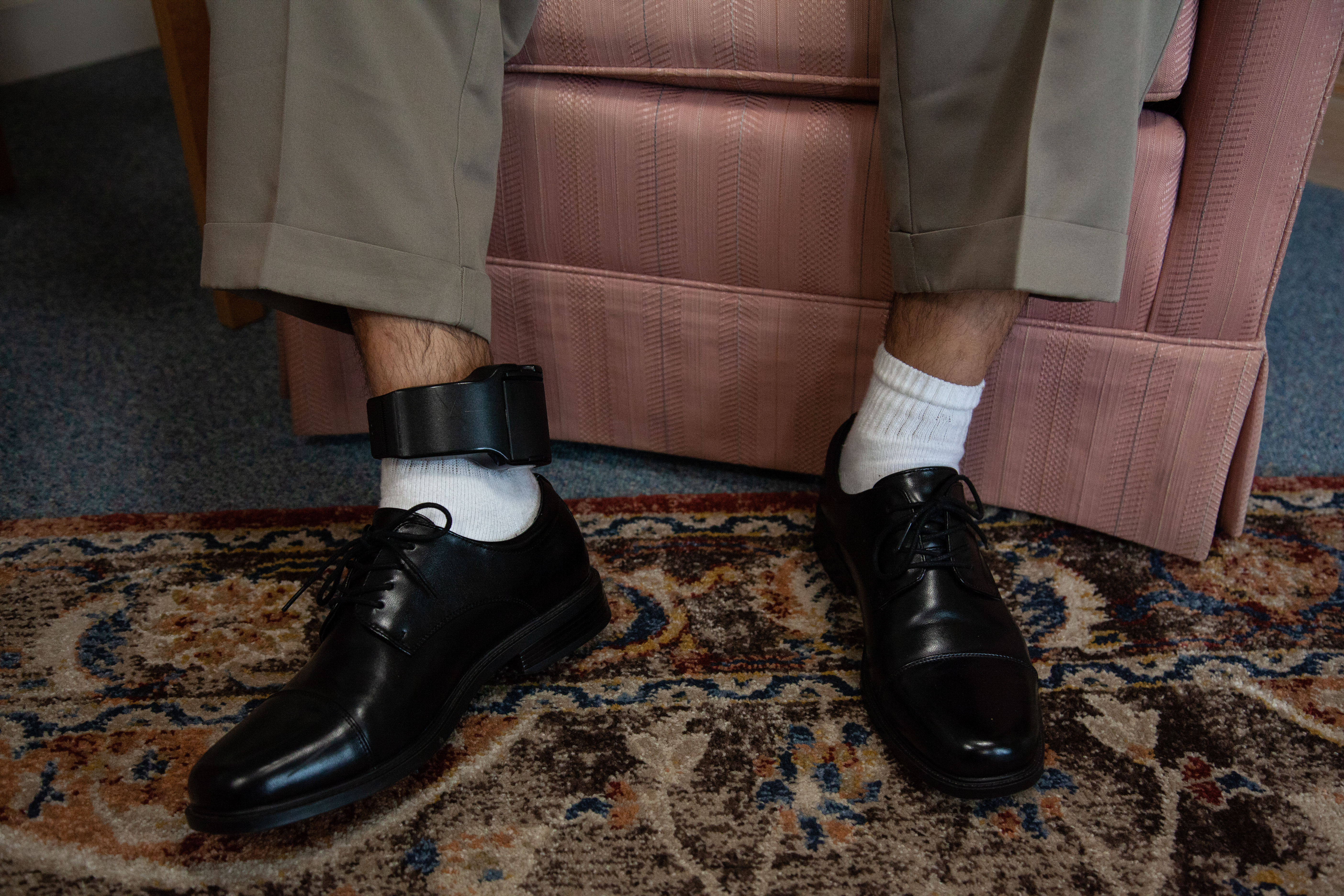
Nager admits she was genuinely frightened by the possibility of ICE entering the church. She wondered if she would need to practice civil disobedience, face arrest and if it would even make a difference for this family.
“You know, I had never put myself on the line physically before, and so when they first arrived in sanctuary, there were a number of dark days,” she says.
For more than six months, Rehman, Altaf and Raniya lived in the basement of the church, waiting for the Board of Immigration Appeals decision — with no idea when it would come. Rehman says he anxiously answered every phone call, hoping it would be news of their case. Weekends were especially difficult, he says, because he knew government offices were closed and they definitely would not call.
“They didn’t wear their suffering at all, but you could just see it,” says Nager.
Congregation members tried to fill their guests’ days with activities like yoga, drum lessons and English language classes. There were weekly potluck dinners, sometimes with pizza from Rehman’s shop, Pizza Corner, which he subleased to a former customer to run for him until they could return.
“When you’re living in a church and know that you can’t leave, and you can’t go outside, and you can’t live your life the way you did before, it can be a challenge,” Tuck says. “And so, finding ways to bring the world inside the church for Rehman and Altaf is the most important part of what we do.”
“There’s nothing like being in charge of someone’s well-being living in a church, I mean, there’s nothing like it,” she says.
Finally, on Aug. 29, 2018 they got their answer: Their appeal was rejected.
They only had one hope left: arguing to the Second Circuit Court of Appeals for a stay of removal that would allow them to stay in the US while they wait for the final decision on their case. And on Oct. 16, the First Congregational Church of Old Lyme held a public press conference — with US Sen. Richard Blumenthal in attendance — to announce that the family had been granted a stay by the federal court.
“We just cried, we couldn’t control our emotions,” says Altaf, letting out a deep sigh as she recalls the moment they got the news.
Two days later, during a check in with immigration officials, Rehman’s ankle monitor was removed. The couple returned home to New Britain, but, a few days later, they found their pizza shop ransacked. While they try to reopen the shop, Rehman and Altaf continue to receive support through donations from church members.
Meanwhile, they are waiting for the Second Circuit Court of Appeals to make the final decision on their case. It will take approximately 120 days.
“I think still we are in a 50-50 chance, we don’t know yet what’s going to be in the future,” Altaf says.
Our coverage reaches millions each week, but only a small fraction of listeners contribute to sustain our program. We still need 224 more people to donate $100 or $10/monthly to unlock our $67,000 match. Will you help us get there today?
